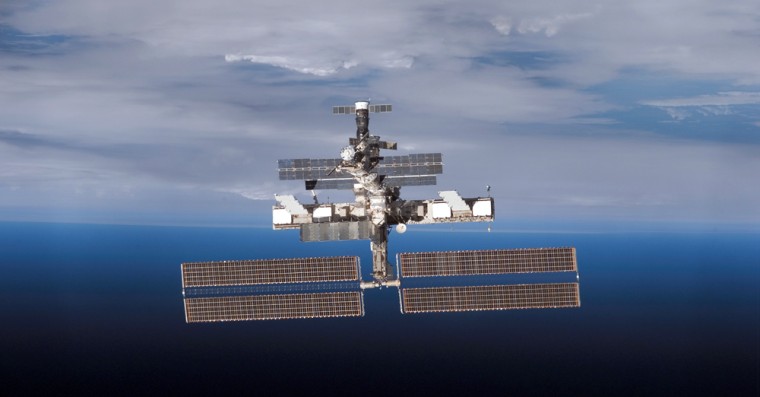NASA is considering shutting down all the research programs it conducts aboard the international space station for at least a year to fill a projected budget shortfall of up to $100 million, a top station manager said Thursday.
Space station research was already slashed to just over $200 million last year to help the U.S. space agency pay for Hurricane Katrina losses and cost overruns in the space shuttle program. Less than $100 million was requested for station research for the year beginning on Oct. 1.
NASA Deputy Space Station Program Manager Kirk Shireman was asked if it was true as reported on the independent NASA Watch Web site that the agency was considering shutting down its research for a year or more for budget reasons, or would pursue other steps. Shireman replied, "All those things are under consideration."
"Right now, we're quite a bit in the hole," told a news conference. "We're looking at a number of options."
The shuttle this month successfully demonstrated NASA's $1.3 billion investment in safety upgrades following the 2003 Columbia disaster. The shuttle fleet is set to resume flying four or five missions a year until its retirement in 2010 to complete assembly of the half-built $100 billion station.
The next flight is set to launch as early as Aug. 27, NASA said Thursday.
When implementing more than $300 million of station cuts last year, NASA Administrator Mike Griffin told Congress it was more important to get the station built than spend money for research.
Some critics said NASA's proposal to eliminate station research entirely for 2007 might be going too far.
"I'm startled that they would even discuss this with a straight face, given that this would be dead-on-arrival in Congress, which has put it into law that it supports station research," said Keith Cowing, who runs the privately funded NASA Watch site.
Under the plan, NASA would resume funding station research in 2008 or 2009, although start-up costs could be high.
"We're looking at what the implications are," Shireman said.
Change of focus
NASA changed its focus after President Bush decided in January 2004 to direct the country's human space program back to lunar exploration, with the intention of eventual missions to Mars.
The decision followed the recommendations of the board investigating the Columbia accident, which killed seven astronauts, that the shuttles needed to be completely recertified for flight by 2010 or retired.
Rather than researching materials, fluid physics and other basic microgravity phenomena, NASA decided to fund only those programs that had a direct bearing on human spaceflight beyond low-Earth orbit, which is where the space station and the space shuttles fly. Funding for radiation studies, for example, was to be a key part of the U.S. station research program.
"Cutting science programs would suggest that it is merely a joy ride to the moon," said Katie Boyd, spokeswoman for Alabama Republican Sen. Richard Shelby. "It would mean that we as a national have wasted billions of taxpayer dollars."
One part of NASA's budget that has been growing is the amount of money set aside for congressionally mandated programs, most of which benefit the lawmakers' home districts. Since 2001, NASA has been saddled with $3 billion in bills for pet programs, according to NASA budget and congressional records.
